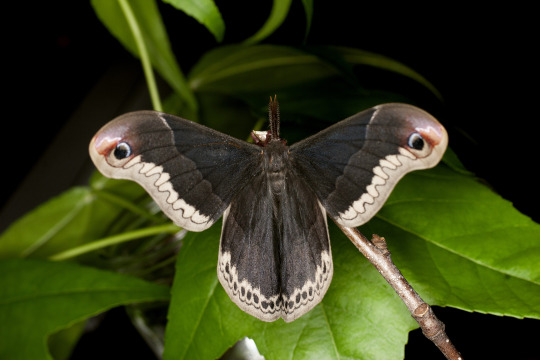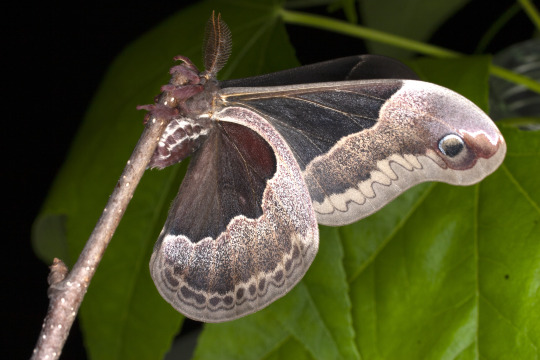
Ever wonder what happens to insects during the winter? Depending on the species they will overwinter during one of the stages of their development. In the case of the Promethea moths that were reared in Invertebrate Zoology last year, the caterpillar culture formed cocoons in the summer of 2018. In their natural setting those cocoons protect the pupae as they experience diapause during the cold winter months. Diapause is a state of dormancy that allows the specimens to survive harsh environmental conditions.
The pupae need to experience diapause before responding to the normal queues that trigger the adult moths to emerge from their cocoons. Insects depend on light and temperature queues which dictate when to enter the stages in their life cycle. In the lab setting, winter conditions were simulated by placing the cocoons in the refrigerator from November through March.

Luckily, the overwintering technique was successful and we had adult moths emerge in late May. Look for these moths in your backyard as they emerge from their cocoons this summer. Watch for caterpillars that look like these, which will hatch from eggs laid by the adult moths flying this summer. These caterpillars will grow and form cocoons which will enter diapause this winter and continue the cycle.
Vanessa Verdecia is a collection assistant in the museum’s Invertebrate Zoology Section. Museum employees are encouraged to blog about their unique experiences and knowledge gained from working at the museum.
